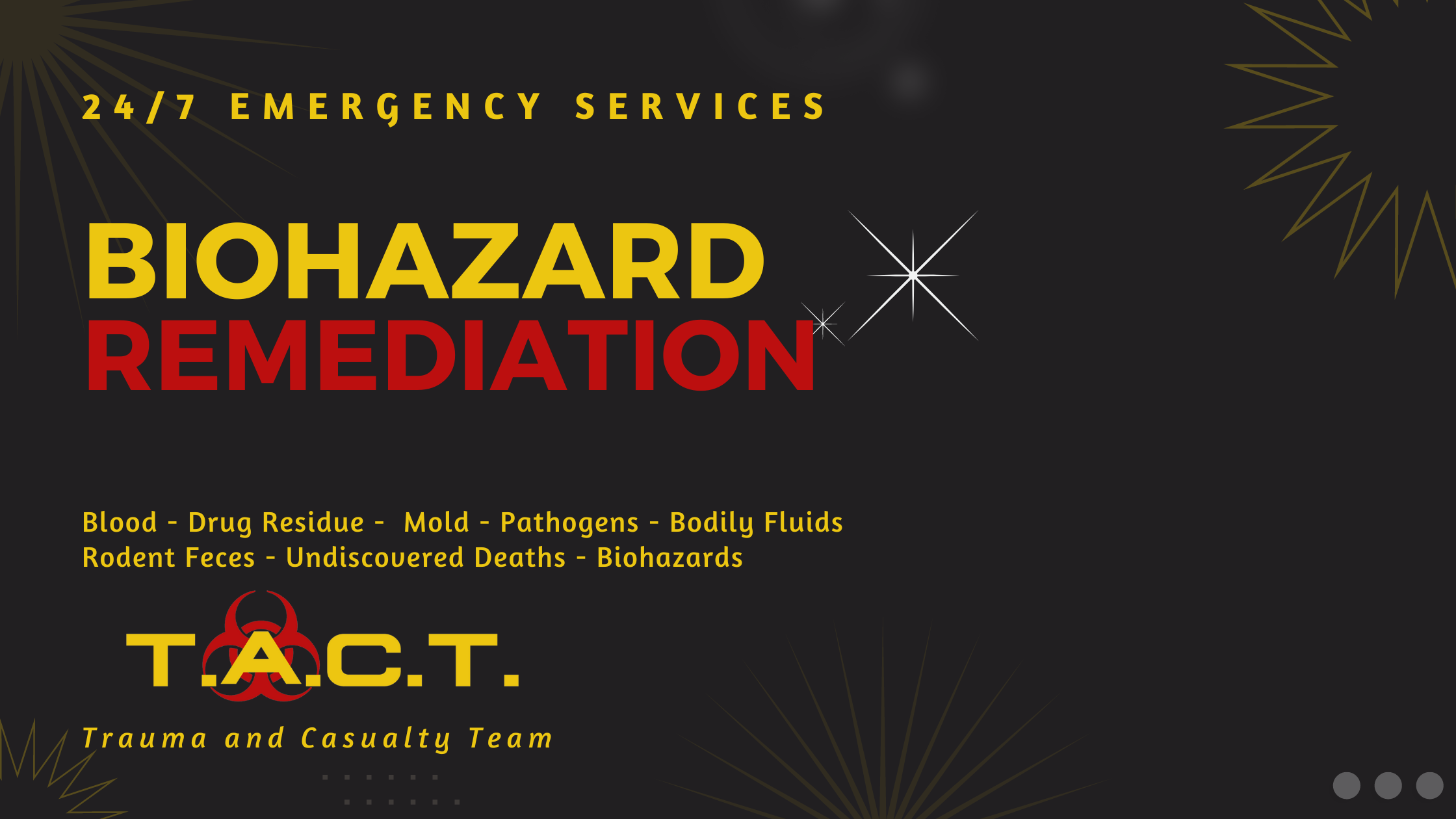Shocking Truths About Hotel Deaths & Guest Safety

How Many People Die in Hotels Every Year: Shocking Truths About Guest Safety
Introduction: Why Hotel Deaths Matter
Hotels are often seen as safe havens for travelers, business professionals, and vacationers. But just how many people die in hotels every year? This article explores the statistics, causes, and what you need to know to stay safe. This article is for travelers, hotel guests, and industry professionals who want to understand the risks and realities of hotel deaths, learn about the main causes, and discover practical safety tips. Understanding these issues is crucial—not only for guest safety but also for the reputation of the hospitality industry and for raising public awareness about the hidden risks that can affect anyone during a hotel stay.
We’ll cover the latest statistics on hotel deaths, break down the main causes (including natural causes, accidents, suicides, and homicides), and provide actionable safety tips for guests and staff. You’ll also learn how hotels handle these incidents and what steps you can take to protect yourself and your loved ones.
How Many People Die in Hotels Every Year? (Summary Table)
While exact annual numbers are not always published, research and industry data provide insight into the causes and frequencies of hotel deaths. Here’s a summary of the main causes and their approximate proportions:
Cause of Death | Approximate Proportion | Description/Examples |
|---|---|---|
Natural Causes | 61%–68% | Primarily cardiovascular diseases, heart attacks, often occurring during sleep |
Accidents | ~30% | Includes drowning, falls, carbon monoxide poisoning, and other unintentional injuries |
Suicides | 4%–5% | Self-inflicted deaths, often in private hotel rooms |
Homicides | <1% | Violent crimes, including murder and assault |
Key Definitions:
Natural Causes: Deaths resulting from medical conditions such as heart attacks, strokes, or other illnesses. Cardiovascular diseases are the leading cause, comprising over 60% of cases in some studies.
Accidents: Unintentional injuries such as drowning in pools, falls from balconies, or carbon monoxide poisoning due to faulty equipment.
Suicides: Self-inflicted deaths, which account for roughly 4-5% of total hotel deaths.
Homicides: Deaths caused by intentional violence, representing less than 1% of hotel deaths.
Now that you know the main causes and their relative frequencies, let’s explore why deaths occur in hotels and what risks guests and staff should be aware of.
An Introduction to Hotel Deaths
Why Do People Die in Hotels?
Hotels are, by their nature, transient spaces. Guests come and go, often under the radar. Many people choose hotels for comfort and relaxation, especially during a vacation, yet tragic events can still occur. Some individuals even prefer hotels over their own homes for privacy or to avoid detection, particularly in sensitive situations. Unfortunately, this makes hotels a common site for unexpected tragedies.
Main Causes of Hotel Deaths
Natural Causes: The majority of hotel deaths (61%–68%) are due to natural causes, primarily cardiovascular diseases. Many guest deaths are attributed to heart attacks or other natural causes, sometimes occurring during sleep.
Accidents: About 30% of hotel deaths are accidental, including drowning, falls, and carbon monoxide poisoning.
Suicides: Suicides account for roughly 4-5% of total hotel deaths, often occurring in private rooms.
Homicides: Less than 1% of hotel deaths are due to violent crimes such as murder.
Often, the hotel will discover the death when family or friends call for a wellness check or when hotel staff enter the room for housekeeping purposes. For hotels, protecting their reputation often means keeping these incidents under wraps, whereas in private residences families may require discreet post-mortem home care cleaning to safely restore the environment. Iconic examples, like Whitney Houston’s death in her suite at the Beverly Hilton, highlight how hard hotels work to keep details away from public scrutiny. But for guests, it’s essential to be aware of the risks, which can include carbon monoxide poisoning, crime, and more. There is a notably high incidence of people choosing to commit suicide in hotels. Additionally, hotel-related deaths and crimes are a significant concern, as these incidents are directly associated with the hotel environment.
Understanding the reality of these incidents enables hotel staff and guests to be better prepared and more vigilant.
Transition: Now that we've explored why deaths occur in hotels, let's look at the types of crimes and risks guests may face.
Understanding Hotel Crime
Hotel crimes—including theft, burglary, and assault—are concerns that should never be dismissed. When combined with potential tragedies like homicide or domestic abuse, these risks underline why hotel safety practices and crime scene cleaning services must be a top priority. Car break-ins in hotel parking lots are also a significant risk, as criminals may search your car for valuables or drugs, leading to theft or further complications.
The Role of Hotel Staff
Training: Hotel staff should receive thorough training to recognize unusual behavior or signs of distress. Common indicators, from unattended bags to erratic guest movements, can serve as red flags.
Reporting: Prompt reporting of suspicious activity to local authorities is critical. Staff should also be vigilant in protecting hotel property and report any suspicious activity involving cars or property to ensure the safety of guests and assets.
Guest Safety Tips
Lock your doors: Always lock your doors and windows. Never prop them open.
Protect your privacy: Avoid sharing the details of your room with strangers.
Secure valuables: Keep valuables in a secure location, such as a room safe.
Don’t leave valuables in your car: This reduces the risk of theft or attracting unwanted attention.
Biohazard cleaners are also unsung heroes in hotels. When tragedy strikes, these professionals ensure that spaces are safely restored. Following a crime or tragedy, they use specialized equipment to clean up blood or other hazardous materials, creating a safer space for future guests. When drugs are found in hotel rooms or cars, professional cleanup is essential to handle drug residue and biohazards safely.
Transition: After understanding the risks of crime in hotels, let’s examine the specific dangers posed by carbon monoxide poisoning and how hotels and guests can prevent these tragedies.
Carbon Monoxide Poisoning Risks
The Silent Danger in Hotels
Carbon monoxide poisoning is one of the most insidious dangers lurking in hotel rooms, especially in bustling destinations like Las Vegas, where the sheer number of hotels and motels increases the odds of such events. Often called the “silent killer,” carbon monoxide (CO) is a colorless, odorless gas that can seep into guest rooms from faulty fuel-burning appliances, poor ventilation, or malfunctioning heating systems.
Carbon Monoxide Poisoning Statistics in Hotels
Statistic | Number/Fact |
|---|---|
Annual CO deaths in the U.S. (all settings) | Over 400 |
Annual CO emergency visits (all settings) | 20,000 |
Hotel/motel/resort CO incidents (2005–2018) | 115 |
Guests poisoned in hotels (2005–2018) | 905 |
Hotel CO fatalities (2005–2018) | 22 |
States requiring CO detectors in hotels | 14 |
Most hotel deaths from carbon monoxide poisoning occur in rooms where safety standards have slipped, and the risk is especially high in properties that lack proper CO alarms or regular maintenance. In Clark County, home to Las Vegas, there have been several publicly reported cases where guests suffered permanent neurological injury, heart attack, or even died in a hotel due to undetected CO leaks. What’s even more concerning is that the same hotel room can be rented to other guests—even weeks after a CO poisoning incident—if the property fails to follow disease control and prevention protocols or skips thorough remediation.
Prevention and Guest Awareness
Hotel staff and management have a duty to exercise reasonable care in preventing CO poisoning. This means not only installing CO alarms in every guest room but also ensuring regular inspection and maintenance of all natural gas and fuel-burning equipment. The lodging industry must take these risks seriously, as a single incident can devastate a hotel’s reputation and put future guests at higher risk. In rare cases, CO poisoning may result from foul play, such as tampering with a building’s heating system, but most hotel deaths are due to natural causes like equipment failure or poor ventilation.
For hotel guests, vigilance is key. Upon check-in, look for visible CO alarms in your room and don’t hesitate to ask the front desk about the property’s safety standards. If you or a family member experience symptoms such as headache, dizziness, or nausea—especially while in your guest room—report it immediately. Early detection can save lives and prevent long-term health consequences.
Disease control measures, as outlined by the CDC, are essential for hotels and motels to prevent CO poisoning. This includes not only installing alarms but also ensuring proper ventilation and prompt response to any reported symptoms or incidents. If a guest dies in a hotel from CO poisoning, it’s critical that the room undergoes professional biohazard remediation to protect other guests and restore the property’s safety.
Transition: Understanding the risks and prevention of carbon monoxide poisoning is just one part of hotel safety. Next, let’s look at what happens after a death occurs in a hotel and how hotels handle these sensitive situations.
What Happens After a Death in a Hotel?
Death in a hotel is a sensitive issue that demands immediate and professional handling. Here’s the process hotels follow in these scenarios:
Step 1: Reporting the Incident
Hotel staff must report the incident to the proper authorities immediately, whether it’s a natural death or suspected crime. When a person dies in a hotel room, staff may be the first to discover the dead body, often during routine cleaning or guest check-out.
Step 2: Investigation by Authorities
Police and, if needed, coroners will investigate the scene to determine the cause of death, after which specialized crime scene cleaning may be required to remove biohazards safely. Authorities may discover human remains and look for evidence on the bed, floor, wall, or ceiling, checking for signs such as bloodstains, trauma, or recent repairs that could indicate the point of injury or death.
Step 3: Biohazard Cleaning & Restoration
After the investigation, the hotel contracts licensed biohazard cleanup after a crime scene services to handle necessary cleanup. In the case of a hotel room death, professional blood cleanup is essential, as untrained staff may miss hazardous materials. Bodily fluids may be present and require specialized cleaning and disinfection to ensure the room is safe for future guests. Items like the bed, floor, wall, or ceiling may need to be replaced if contaminated. For example, if bloodstains are found on the bed or floor, the cleanup process involves removing and replacing affected mattresses, carpets, or flooring to ensure no trace remains. Most items in a hotel room are replaced after a death, depending on the type of death and the biohazards left behind. Sometimes, only half of a room is renovated, which can be noticeable if wallpaper or furniture styles differ. The process can take up to a week before the room is ready for sleeping guests again. The course of action during cleanup includes checking for signs such as someone sitting or sleeping in the bed at the point of death, ensuring all evidence is addressed.
Step 4: Discretion Is Key
Hotels generally avoid disclosing the details of such incidents, and privacy for the deceased’s family is maintained. Additionally, room numbers are not publicized to avoid creating stigma.
Through this meticulous process, hotels aim to balance respect for human life with maintaining a welcoming environment.
Transition: Now that you know how hotels handle deaths, let’s explore what really happens behind closed doors and what guests should be aware of during their stay.
The Reality of What Happens in Hotel Rooms
When you check into a hotel room, you expect a clean, comfortable space to relax or sleep. But behind the closed doors of hotel rooms, a surprising range of incidents can—and do—happen. From natural causes to more sinister events like murder, suicide, or domestic abuse, hotel deaths are a reality that hotels work hard to keep out of the spotlight.
How Hotels Respond to Incidents
Hotel personnel are trained to handle these situations with the utmost discretion. If a death occurs—whether from natural causes or as the result of a crime scene—the room is quickly sealed off, and the authorities are called. The coroner removes the body, and police conduct a thorough investigation. Afterward, specialized biohazard cleaning services are brought in to restore the room, often replacing carpet, walls, or even light fixtures to erase any trace of what happened. In some cases, entire rooms are renovated or even retired, as was the case at the Beverly Hilton after Whitney Houston died there.
Despite these great lengths, traces of past incidents can sometimes linger. Guests staying in hotel rooms have reported finding odd stains on the carpet, strange marks on the walls, or even unusual smells—reminders that people die in hotels more often than most realize and that situations like unattended death cleanup may have been necessary. Sometimes, the room number where a high-profile death or crime occurred becomes public knowledge, leading to unwanted attention or even dark tourism.
Hotel staff are bound by strict confidentiality agreements and are often forbidden from talking to the press or sharing details with guests or families. Their priority is to protect the privacy of those involved and the reputation of the hotel. At the same time, they must remain vigilant for signs of hotel crime, such as domestic abuse or theft, and report anything suspicious to the front desk or police.
For guests, the reality is that hotel rooms are not immune to tragedy. While most stays are uneventful, it's wise to be aware of your surroundings, secure your valuables, and report anything unusual. Hotels and motels in every city, from Las Vegas to small towns, have seen their share of incidents—reminding us that behind every door, there's a story, and sometimes, a mess that needs to be addressed by a professional biohazard company before the next guest arrives.
By understanding what can happen in hotel rooms and how hotel personnel respond, guests can better protect themselves and appreciate the unseen efforts that go into making every stay as safe and comfortable as possible.
Transition: Now, let’s break down the real risks you should be aware of in hotel rooms and how to spot potential dangers.
Real Risks You Should Be Aware of in Hotel Rooms
Hotel rooms may appear serene and pristine, but they have their risks. Being mindful of these hazards empowers guests to act wisely and stay safe.
Unseen Dangers
Carbon monoxide poisoning is a silent killer that has unfortunately struck unsuspecting hotel guests in the past. Always check for working smoke and carbon monoxide detectors in your room when you arrive. Smoke alarms have been mandated in hotels since 1990 and are essential for fire safety, protecting guests from fire-related accidents. This highlights the need for similar requirements for carbon monoxide alarms, which are not as widely mandated.
From January 1, 2005 to December 31, 2018, 905 guests were poisoned in 115 identified incidents of carbon monoxide poisoning in US hotels, motels, and resorts. Among those poisoned, there were 22 fatalities, with children representing 16% of those poisoned and 27% of the fatalities. Most carbon monoxide poisonings in hotels were caused by natural gas fueled appliances. Despite the significant risk posed by faulty equipment and poor ventilation, only 14 states in the U.S. currently require carbon monoxide detectors in hotels or motels under statute. Carbon monoxide is colorless, odorless, and non-irritating, making it difficult to detect without alarms. The lodging industry has opposed the installation of carbon monoxide alarms in guest rooms due to cost concerns, and carbon monoxide poisoning incidents in hotels have continued over the past three decades despite known risks and potential solutions.
There is always a risk of a person dying in a hotel room from various causes, including natural causes, accidents, or even suspicious circumstances, which may require a professional clean up crew after death to restore the space safely.
Signs of Neglect
Unusual odors, bloodstains, or other abnormalities should never be ignored. Bloodstains could be a sign that someone was murdered in the room, and such incidents, though rare, do occur. If you notice something suspicious, report it to the front desk immediately. It’s better to err on the side of caution.
Suicide in Hotel Rooms
Hotels are unfortunately common locations for suicides. Guests who notice signs of distress or concerning behavior in others should alert staff discreetly. Hotels rarely talk about these incidents, as they often try to protect their reputation by keeping such events out of public discussion.
Protecting yourself starts with being observant and prioritizing personal safety measures, especially during your stay.
Transition: With these risks in mind, let’s review practical steps you can take to stay safe during your next hotel stay.
Staying Safe in a Hotel Room
Want to rest easy next time you stay in a hotel? Follow these simple but effective tips to protect yourself and your loved ones while traveling:
Lock your doors: Always lock your doors and windows. Double-check peepholes and security latches on doors.
Research the hotel: Check the reviews of the hotel before booking. A pattern of unresolved safety complaints should be a warning sign.
Know emergency procedures: Familiarize yourself with emergency exits and evacuation procedures for the building. Ensure you have contact information for the front desk handy.
Limit interactions with strangers: Be cautious about sharing information such as your room number with others. Strangers may not always have good intentions.
By taking these precautions, your stay can be as safe as it is enjoyable.
Transition: While guest vigilance is important, hotels also have a responsibility to maintain high safety standards. Let’s look at the consequences of negligence in the hospitality industry.
The Cost of Negligence
Failing to address safety concerns isn't just ethically wrong for hotels; it can cost them in more ways than one.
Legal Consequences: Negligence in maintenance, security, or cleanliness can result in lawsuits. Victims of accidents or crimes have successfully sued hotels for failing to uphold safety standards, and families coping with a loss may also need guidance on what you should do after a death in Atlanta to ensure proper cleanup and compliance.
Tarnished Reputation: With social media and online reviews, bad press spreads quickly. Poor handling of guest safety directly impacts future bookings. Incidents involving deaths or crime scenes can seriously impact the hotel's business and long-term profitability.
To stay competitive and trustworthy, hotels must prioritize safety measures, staff training, and guest protection at every level.
Transition: Ultimately, making hotel stays safer is a shared responsibility. Here’s how guests and hotels can work together for a safer experience.
Making Hotel Stays Safer for Everyone
Staying at a hotel should feel like a relaxing escape, not a cause for concern. While hotel deaths and crimes remain deeply unsettling topics, understanding these issues paves the way for safer stays and better practices for both hotels and guests.
Guests can take steps to stay vigilant and protect themselves, while hotels must take their duty of care seriously by investing in training, safety measures, and biohazard cleanup when necessary.
Together, we can make hotels more than just places to rest; we can make them spaces where safety, empathy, and responsibility meet.
Meta Data
Meta Title
Shocking Truths About Hotel Deaths & Guest Safety
Meta Description
Hotel deaths often go unspoken. Explore the hidden risks, crime stats, and safety tips for your next stay. Stay informed, stay safe.



